STATEHOUSE REPORT | ISSUE 22.02 | JAN. 13, 2023
NEWS: Abortion, vouchers dominate legislature’s first week
NEWS BRIEFS: McMaster uses inaugural speech to push economy, education, environment
LOWCOUNTRY, Ariail: Overreaching
COMMENTARY, Brack: A clever, fair way to avoid costly runoff elections
SPOTLIGHT: The S.C. Education Association
ANOTHER VIEW: Book on Lee changed mind on names of military forts
FEEDBACK: Add verification info to your letters, thoughts
MYSTERY PHOTO: Another old picture
Abortion, vouchers dominate legislature’s first week
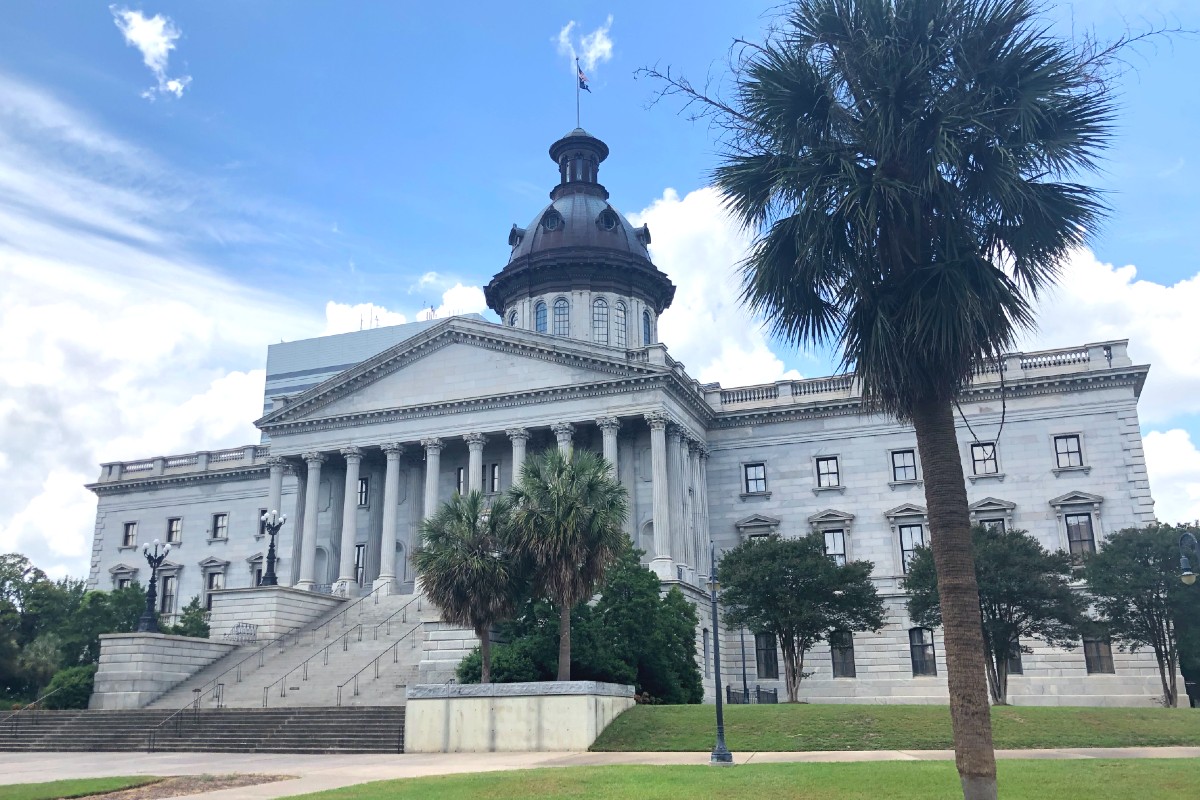
By Andy Brack, news analysis | With more than 900 bills prefiled before the Tuesday opening of the 2023 legislative session, it’s not like state lawmakers could twiddle their thumbs. There was plenty of work to do.
But two perennially pesky issues – abortion and school vouchers – quickly reared their heads to suck the air away from just about everything else.
Despite lots of action and reaction in 2022 about abortion, the issue rocketed to the top of the Republican legislative agenda last week after the state Supreme Court overturned a 2021 six-week abortion ban. When the U.S. Supreme Court overturned the landmark Roe v. Wade decision last June, it triggered the S.C. ban into effect. But the S.C. high court paused the ban as it considered whether it was constitutional. On Jan. 5, it ruled 3-2 that the ban violated the state’s constitutional right to privacy.
And in turn, the ruling immediately caused the General Assembly to flip in more ways than one. First, it steered GOP legislators to start committing more energy into crafting a new ban, despite the fact that the issue seemed all talked out last year. And second, the court’s action caused a reaction in which any justices up for reelection will be met with extra scrutiny on abortion. It’s likely that when lawmakers vote for a replacement for Justice Kaye Hearn in February, they’ll pick a solid conservative who could flip the Jan. 5 abortion ban interpretation in a future case. Furthermore, the ruling may also cause lawmakers to reconsider how all judges are screened and picked.
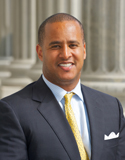
“What I’m afraid is about to happen is we’re going to focus a bunch of time on abortion [and] we’re going to be derailed and put on this path of trampling on women when we should be focused on making South Carolina Better,” House Minority Leader Todd Rutherford, D-Richland, told The Post and Courier.
But abortion wasn’t the only controversial issue discussed in the General Assembly’s first week. State GOP senators made a very public display of affection for a measure that would provide $6,000 in school vouchers to parents who wanted to send their K-12 children to private schools. The bill, which almost made it into law last year, was sent to the Senate floor from its education committee on Thursday.
While abortion and school vouchers are expected to dominate the early part of session, here’s a short look at other key issues that should be on the front burner this year:
Budget. The single biggest thing that the legislature does each year is to figure out how to spend billions in state tax dollars to pay for services. This year, they have an easier job than usual because they face a $3.8 billion surplus, which Gov. Henry McMaster is encouraging them to use it for significant pay hikes for state employees and teachers, who are leaving education in droves. Paying them more is one strategy to stanch the flow.
Redistricting. After a three-judge panel of federal judges last week ruled the General Assembly’s map for the 1st Congressional District is unconstitutional and racially gerrymandered, lawmakers will have to go back to the drawing board. Expect a new proposal by the end of March.
Rescue money. The General Assembly also has a pot of $580 million in federal rescue funds that they have to allocate this year for qualified purposes or they’ll lose it.
Economic development. State leaders say they want to use some of the surplus to promote more economic development in an effort to have a healthy economy in the event of a national economic downturn. That means investments in workforce development, technical training, education scholarships and more.
Crime. Lawmakers may also work on strategies to cut use of highly addictive fentanyl and reform the bail system so violent suspects don’t get out of jail too easily.
- Have a comment? Send to: feedback@statehousereport.com
McMaster uses inaugural speech to push economy, education, environment

Staff reports | Gov. Henry McMaster, who was sworn into office for the third time Wednesday, touted the state’s economy and beauty in his inaugural address. The 75-year-old governor urged lawmakers to better preserve the beauty of the state with investments in prosperity, while vowing to make “transformative investments” to continue the state’s economic boom.
“I view our foundations for great prosperity and happiness as resting on three pillars: economic strength, education and our natural environment,” McMaster said.
The 20-minute address laid out several spending recommendations, including paying first-year teachers upwards of $50,000 a year by 2026 to help reel in a statewide teacher shortage.
“We must do whatever it takes to see that every child in our state has the opportunity to receive an excellent education,” he added.
In other news this week:
![]() 1st Congressional District illegally gerrymandered, judges rule. A panel of three federal judges ruled Friday that South Carolina legislators racially gerrymandered the district’s map in a constitutionally required remapping in 2021.
1st Congressional District illegally gerrymandered, judges rule. A panel of three federal judges ruled Friday that South Carolina legislators racially gerrymandered the district’s map in a constitutionally required remapping in 2021.
Democrats ask to probe Weaver’s credentials. South Carolina Democrats have asked the U.A. Department of Justice and state Attorney General Alan Wilson to look into new State Superintendent Ellen Weaver’s masters degree. The party alleges Weaver not only conspired to commit fraud but also received special treatment to obtain a master’s degree in time for the 2022 election.
S.C.’s McLeod quits Democratic Party. S.C. Sen. Mia McLeod of Richland County abruptly Tuesday quit the Democratic Party to become an independent, a surprise announcement that sent ripples and criticism against the party.
Embattled USC trustees forwarded to legislature for consideration. Five incumbent USC trustees, who were among those criticized heavily last year over lax oversight at the state’s largest college, have been screened and forwarded as recommended candidates to the legislature to reappoint.
What is Cunningham’s future? Joe Cunningham lost S.C.’s race for governor by double digits. This story contemplates his future.
Charleston metro job growth ranks 2nd in nation. The Charleston Metropolitan area saw a 6.6% increase in job growth last year, which was the second highest rate in the nation, according to the U.S. Bureau of Labor Statistics.
Trump prepares to start 2024 campaign in South Carolina. The former president said he will host a more “intimate” party in Columbia than his typical rallies later this month.
Hundreds stranded on Amtrak train in S.C. Hundreds of Amtrak passengers were stranded on a train stuck for about a day near Denmark, S.C., after a derailment by a CSX freight train.
Overreaching

Cartoonist Robert Ariail is pretty clear about how he feels about the legislature’s 2021 abortion ban, overturned last week by the state Supreme Court. Ariail often interprets things a little differently, but always has an interesting take on what’s going on. Love the cartoon? Hate it? What do you think: feedback@statehousereport.com.
A clever, fair way to avoid costly runoff elections
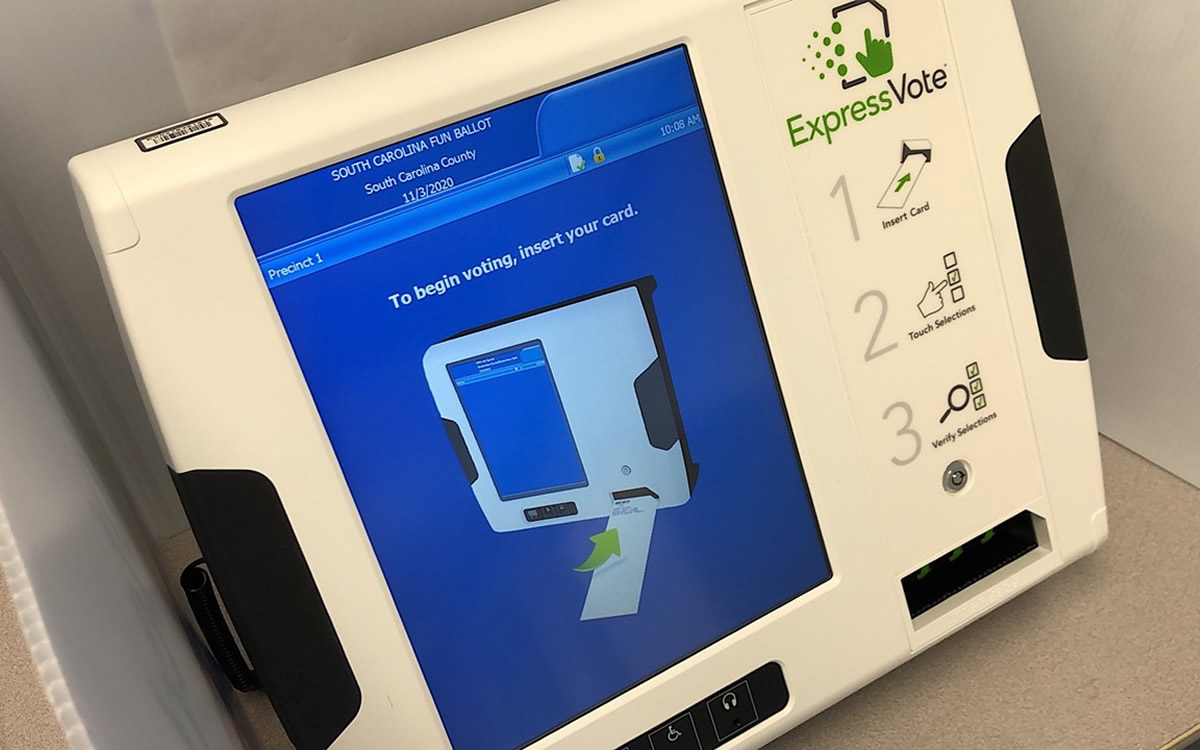
By Andy Brack | Imagine you walk into the voting booth to find a different kind of ballot. Instead of being able to vote for just one candidate per race in an election, you get to vote by ranking all of the candidates.
 Your number one vote is for the person you think would be best in the job. Today in elections, that’s all you get to do. If no one gets a majority, the election goes to a runoff – meaning you have to go back to the polls later to cast another ballot in another election for one of the top two vote-getters – even if the candidate you picked in the first election is on the second ballot. This kind of runoff voting is expensive, time-consuming and less representative because runoffs have a much lower turnout (which means a much smaller subset of voters actually picks the winner.)
Your number one vote is for the person you think would be best in the job. Today in elections, that’s all you get to do. If no one gets a majority, the election goes to a runoff – meaning you have to go back to the polls later to cast another ballot in another election for one of the top two vote-getters – even if the candidate you picked in the first election is on the second ballot. This kind of runoff voting is expensive, time-consuming and less representative because runoffs have a much lower turnout (which means a much smaller subset of voters actually picks the winner.)
But imagine tweaking our current voting system so that you don’t have to head back to the polls for a runoff. Instead, you would rank all candidates when you went into the voting booth on election day. You’d still pick your top candidate. But then you’d pick the second-best one – in case your person didn’t win the election. And then you would keep ranking each candidate on the ballot.
In this scenario if no one won with a majority on the first counting of the ballot, election officials would recalculate the results, throwing out the last place finisher and assigning that candidate’s votes to each voter’s number two choice. The process would continue until one candidate in the race wins a majority.
It’s called “ranked choice voting” (RCV), or “instant runoff voting,” and it’s an idea that is sweeping the country as a way to avoid the hassle of how we do runoffs today.
“The beauty of ranked choice voting is in how simple and powerful it is,” said Andrew Yang, a former Democratic presidential candidate who now heads the Forward Party. “It gives all of us more power at the ballot box, while also improving the incentives of politicians to reject extremism and represent the people better.
“In South Carolina, RCV could not only save the state money by preventing needless low-turnout runoff elections, but also create a government in Columbia that works together to solve your problems,” Yang told Statehouse Report. “The current system isn’t delivering those results, but with RCV it will.”
Advantages of this form of instant runoff:
Less expensive. Election officials don’t have to run another whole election, meaning they don’t have to open precincts or hire a huge temporary staff to run voting sites. Instead, voters make their picks in the general election and, thanks to computers, votes are calculated relatively quickly when no one gets a majority on the first count. State officials say a statewide runoff can cost up to $1.5 million. And with more costs for county election commissions, South Carolina taxpayers could save at least $2 million per primary and general election by adopting a new way to vote using the same voting machines.
Easy. Ranked choice voting is currently being done in other states without problems. It has been used for years in countries like Australia – and voters like it because they only have to go to the polls once per election.
More representation. Minority parties tend to push instant runoffs because they give their candidates a better chance. For example, let’s say you really wanted a Libertarian to win. But in the past, you might have voted for a Republican or Democrat because you wanted your vote to count. In ranked choice voting, you could vote for the Libertarian. If no candidate gets a majority in the first count but the Libertarian isn’t at the bottom, the last place candidate is knocked off. When that candidate’s votes are reassigned, the Libertarian might get enough votes to go over the top and win in the second round of counting.
You can learn more about ranked choice voting from Better Ballot South Carolina, a grassroots group planning a 2 p.m. rally on Jan. 23 at the Statehouse. Yang and state Rep. Jermaine Johnson, D-Richland, are expected to speak.
Andy Brack is editor and publisher of Statehouse Report and the Charleston City Paper. Have a comment? Send to: feedback@statehousereport.com.
The S.C. Education Association
 The public spiritedness of our underwriters allows us to bring Statehouse Report to you at no cost. This week’s spotlighted underwriter is The South Carolina Education Association(The SCEA), the professional association for educators in South Carolina. Educators from pre-K to 12th grade comprise The SCEA. The SCEA is the leading advocate for educational change in South Carolina. Educators in South Carolina look to The SCEA for assistance in every aspect of their professional life. From career planning as a student to retirement assessment as a career teacher, The SCEA offers assistance, guidance, and inspiration for educators.
The public spiritedness of our underwriters allows us to bring Statehouse Report to you at no cost. This week’s spotlighted underwriter is The South Carolina Education Association(The SCEA), the professional association for educators in South Carolina. Educators from pre-K to 12th grade comprise The SCEA. The SCEA is the leading advocate for educational change in South Carolina. Educators in South Carolina look to The SCEA for assistance in every aspect of their professional life. From career planning as a student to retirement assessment as a career teacher, The SCEA offers assistance, guidance, and inspiration for educators.
- Learn more: TheSCEA.org
Book on Lee changed mind on names of military forts
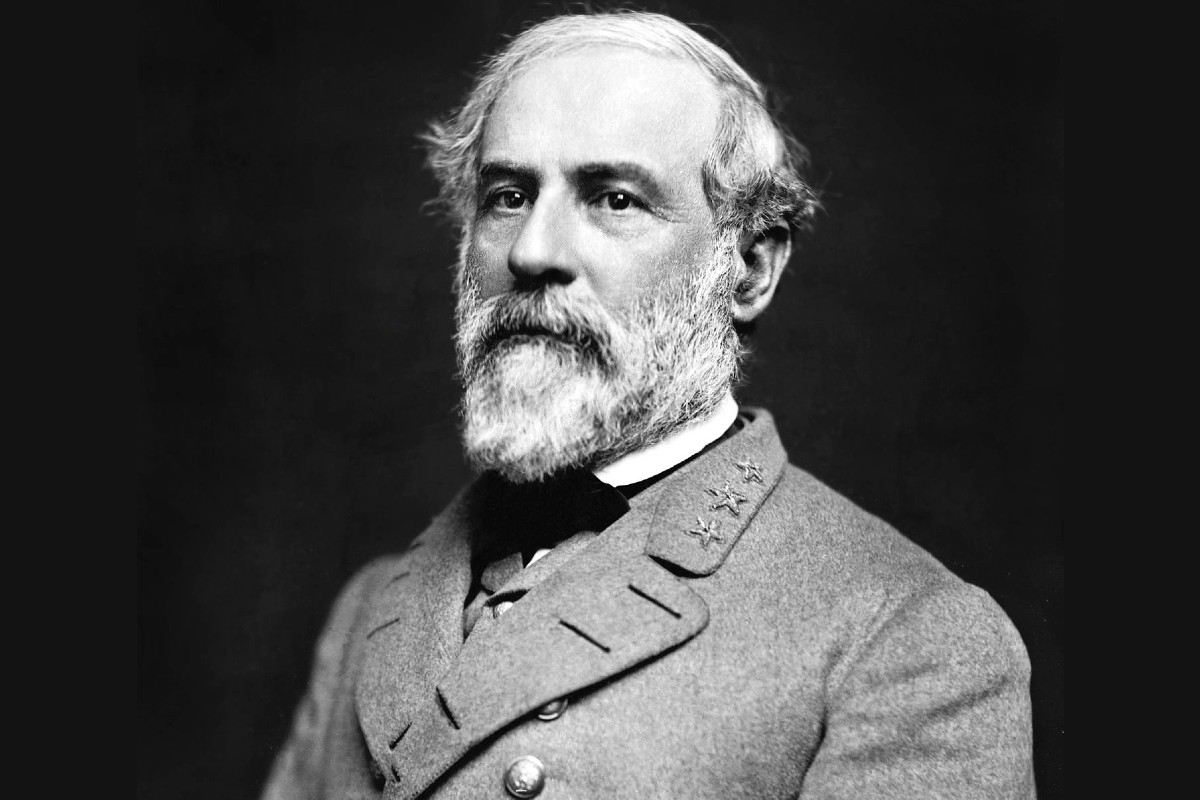
EDITOR’S NOTE: None of South Carolina’s eight active duty military installations are named after Confederate soldiers, but this article may shed a new light on your thinking about Civil War names.
By Elliott Brack, republished from GwinnettForum | The book, Robert E. Lee and Me, was written by Ty Seidule, an author I had never heard of. Though I hesitated in opening the book, I’m glad I did. For it is an amazing book, one that thoroughly changed my mind about renaming military posts for Confederate leaders.
 Seidule is a retired career Army brigadier general, who for 20 years was a professor of history (now emeritus) at West Point. He is a graduate of Washington and Lee University and holds a Ph.D. from the Ohio State University. In 2021, Secretary of Defense Lloyd Austin appointed him to the National Commission on Base Renaming. He served as the vice chair.
Seidule is a retired career Army brigadier general, who for 20 years was a professor of history (now emeritus) at West Point. He is a graduate of Washington and Lee University and holds a Ph.D. from the Ohio State University. In 2021, Secretary of Defense Lloyd Austin appointed him to the National Commission on Base Renaming. He served as the vice chair.
Seidule grew up in Lexington, Virginia, the site of Washington and Lee, and was immersed in Robert E. Lee’s life. He understands the “Lost Cause” of Southern history which held that Lee was the greatest man who ever lived. The work of Seidule is essentially showing us why and how he changed his views about the Civil War and its leaders, showing them in a far different light than most Southerners think.
In our nation’s history, the U.S. Army named military installations for individuals, such as Fort Washington, Md., in 1776; Fort McPherson, Ga., in 1867 for Maj. Gen. James B. McPherson; and Schofield Barracks in Hawaii for Lt. Gen. John Schofield in 1908.
One of the reasons there are many military bases named for Confederates is that many Army posts were founded during a time when leaders in Congress were Southerners and former Confederates, and who controlled the naming of military posts. Yet many Army posts therefore were named for people who fought (as Confederates) against the country. That is why the country is re-naming Army posts these days.
 Therefore, we had 10 Army facilities named for Confederates.
Therefore, we had 10 Army facilities named for Confederates.
- Fort Benning, Ga.: Brig. Gen. Henry Benning. lower rank Confederate general who was a secessionist and slaveholder.
- Fort Gordon, Ga.: Georgia’s John B. Gordon. After the war, he was Grand Dragon of the Ku Klux Klan, and led the national Klan. He is a former Georgia governor and senator.
- Fort Lee, Va.: Gen. Robert E. Lee of Virginia, overall commander of the Confederate Army. Later president of Washington College.
- Fort Pickett, Va.: Maj. Gen. George Pickett, best known for leading the futile charge at Gettysburg, who initially fled to Canada after the war.
- Fort A.P. Hill, Va., Lt. Gen. A.P. Hill, was a division commander under Lee and died in combat.
- Fort Bragg, N.C.: Braxton Bragg, considered one of the worst generals of the war, as his frontal assaults often lost.
- Fort Polk, La.: Leonidas Polk, an Episcopal bishop, another incompetent who was known to fail to follow orders.
- Camp Beauregard, La.: Pierre G.T. Beauregard led the attack on Fort Sumter.
- Fort Hood, Texas.: John Bell Hood., abandoned Atlanta to Sherman.
- Fort Rucker, Ala.: Col. Edmund Rucker of Tennessee, a former enlisted man, later became an industrial leader of Birmingham, Ala.
All but Benning, Gordon and Rucker were graduates of West Point, but then fought against their country. That’s one reason the Army bases are being renamed.
The author also illustrates how many facilities at the Military Academy at one time were named for Confederates, many of them for Lee. An announcement last week told how West Point will continue removing Confederate symbols.
More than 200 symbols of the Confederacy have been removed or renamed at the Academy since 2020. A Defense Department directive ordered West Point to remove or replace items “that commemorate or memorialize the Confederacy.”
Our country owes a debt of gratitude to Brig. Gen (Ret) Ty Seidule for explaining this to our country. It changed my view of military base names.
Veteran Georgia journalist Elliott Brack publishes GwinnettForum twice a week online. Have a comment? Send to: feedback@statehousereport.com
Add verification info to your letters, thoughts
We’ve gotten some letters in the last few weeks – some positive, others nasty. We like to print non-defamatory comments, but unless you provide your contact information – name and hometown, plus a phone number used only by us for verification, we can’t publish your thoughts.
Have a comment? Send your letters or comments to: feedback@statehousereport.com. Make sure to provide your contact details (name, hometown and phone number for verification. Letters are limited to 150 words.
Another old picture
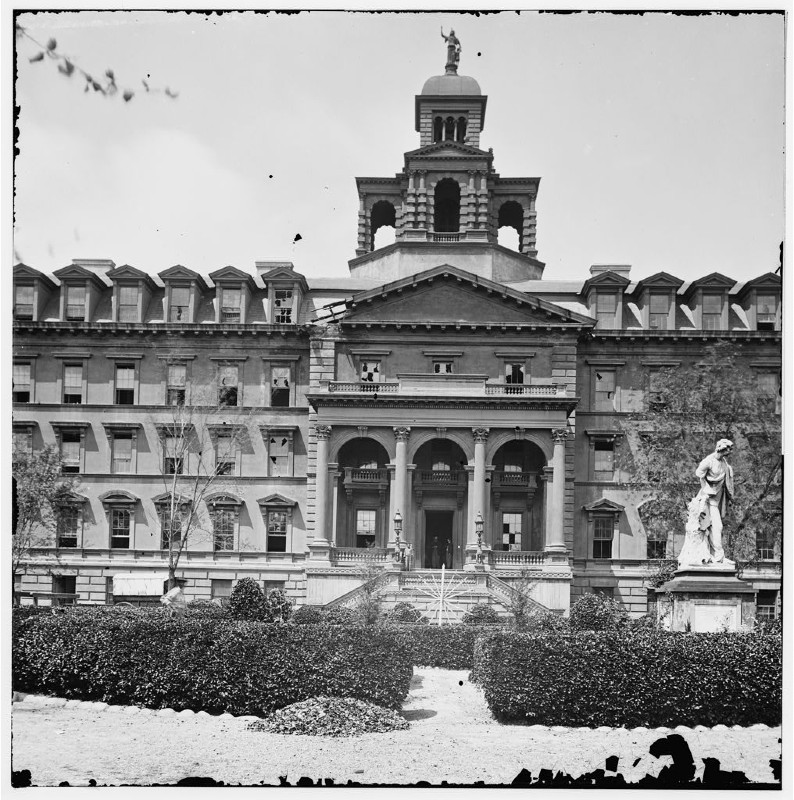
So here’s a really old picture. Where is it? A clue may be the statue on the right side of the image. Bonus points for telling us where that statue is today. Send us your guess – as well as your name and hometown – to feedback@statehousereport.com.
 Last week’s phot0, “Old bridge,” must look like a lot of bridges because we got lots of guesses for places across the state. However, the bridge in the picture was a 1968 Library of Congress image that showed a span across the Santee Diversion Canal on S.C. Highway 45 at Eadytown in Berkeley County. According to the LOC website, “the South Carolina Highway Department’s use of salvaged steel trusses from the U.S. 15 Santee River Bridge, completed in 1927, also adds to the distinctiveness of the bridge. The SC 45 Santee Cooper Diversion Canal Bridge is perhaps the first salvaged bridge project undertaken by the South Carolina Highway Department.”
Last week’s phot0, “Old bridge,” must look like a lot of bridges because we got lots of guesses for places across the state. However, the bridge in the picture was a 1968 Library of Congress image that showed a span across the Santee Diversion Canal on S.C. Highway 45 at Eadytown in Berkeley County. According to the LOC website, “the South Carolina Highway Department’s use of salvaged steel trusses from the U.S. 15 Santee River Bridge, completed in 1927, also adds to the distinctiveness of the bridge. The SC 45 Santee Cooper Diversion Canal Bridge is perhaps the first salvaged bridge project undertaken by the South Carolina Highway Department.”
Hats off to everyone who correctly identified the picture, including: Allan Peel of San Antonio, Texas; Jay Altman, Elizabeth Jones and David Montgomery, all of Columbia; Roger Stafford of West Columbia; Tina McMahon of North Augusta, Florida; Bessie Sutton of Lamar; Don Clark of Hartsville, Tenley Courtney of Eutawville; Mark H. Williams of Florence; Penny Forrester of Tallahassee, Florida; David Lupo of Mount Pleasant; Curtis Joyner of Charleston; and Pat Keadle of Wagener.
>> Send us a mystery picture. If you have a photo that you believe will stump readers, send it along (but make sure to tell us what it is because it may stump us too!) Send to: feedback@statehousereport.com and mark it as a photo submission. Thanks.
- ORDER NOW: Copies are in Lowcountry-area bookstores now, but if you can’t swing by, you can order a copy online today.
- Now available as an e-book!
ABOUT STATEHOUSE REPORT
Statehouse Report, founded in 2001 as a weekly legislative forecast that informs readers about what is going to happen in South Carolina politics and policy, is provided to you at no charge every Friday.
- Editor and publisher: Andy Brack, 843.670.3996
Donate today
We’re proud to offer Statehouse Report for free. For more than a dozen years, we’ve been the go-to place for insightful independent policy and political news and views in the Palmetto State. And we love it as much as you do.
But now, we can use your help. If you’ve been thinking of contributing to Statehouse Report over the years, now would be a great time to contribute as we deal with the crisis. In advance, thank you.
Buy the book
Now you can get a copy of editor and publisher Andy Brack’s We Can Do Better, South Carolina! ($14.99) as a paperback or as a Kindle book ($7.99). . The book of essays offers incisive commentaries by editor and publisher Andy Brack on the American South, the common good, vexing problems for the Palmetto State and interesting South Carolina leaders.
More
- Mailing address: Send inquiries by mail to: P.O. Box 21942, Charleston, SC 29413
- Subscriptions are free: Click to subscribe.
- We hope you’ll keep receiving the great news and information from Statehouse Report, but if you need to unsubscribe, go to the bottom of the weekly email issue and follow the instructions.
- Read our sister publication: Charleston City Paper (every Wednesday in print; Every day online)
- © 2023, Statehouse Report, a publication of City Paper Publishing, LLC. All rights reserved.


